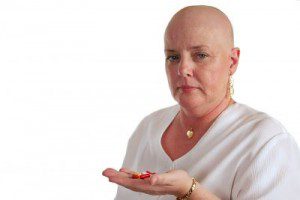By Sayer Ji
Contributing Writer for Wake Up World
A study published in the journal Cancer Epidemiology, Biomarkers & Prevention indicates that women who are long-term users of statin drugs have between 83-143% increased risk of breast cancer.[1]
The population-based case-control study utilized data from women in the Seattle-Puget Sound region, which included 916 invasive ductal carcinoma (IDC) and 1,068 invasive lobular carcinoma (ILC) cases of 55-74 years of age diagnosed between 2000 and 2008, and a control of 902 women.
Whereas recent publicity on statin drugs has focused on their potential use for cancer prevention or as anti-cancer agents, this study found exactly the opposite with current users of statins for 10 years or longer having a 1.83-fold increased risk of invasive ductal carcinoma (IDC) and a 1.97-fold increased risk of invasive lobular carcinoma (ILC) compared to never users of statins.
Additionally, among women diagnosed with hypercholesterolemia, a condition marked by high levels of lipids and lipoproteins in the blood, current users of statins for 10 years or longer had more than double the risk of both IDC [an average of 104% increased risk] and ILC [an average of 143% increased risk] compared to never users.
Of course, the discovery of a correlation between higher statin drug use and higher breast cancer risk does not necessarily imply causation. For instance, women who are on statins are obviously compliant with conventional blood lipid screening recommendations and therefore are more likely to be complaint with breast screening guidelines as well. Given that recent estimates show that breast screenings have resulted in over 1.3 million US women being misdiagnosed and overtreated for breast cancer in the past 30 years, simply being complaint with breast screening guidelines will result in significantly increased risk of being diagnosed with breast cancer regardless of whether the diagnosis is accurate or not. [2]
On the other hand, this latest study could indicate a more serious problem, namely, that cholesterol-lowering drugs and statin drugs in particular are carcinogenic. Statin drugs, in fact, have long been suspected to increase the risk of certain cancers, including prostate,[3] colorectal,[4] and kidney;[5]conversely, low cholesterol has been found to increase the risk of cancer at all sites, further implicating these cholesterol-lowering agents as possible carcinogens.[i][6]
At the least, this study raises doubt as to whether the recent push to identify statin drugs as possible chemopreventive or chemotherapeutic agents can be validated by independent science, especially considering that this class of cholesterol-lowering medications have been linked to over 300 adverse health effects in the published literature.
This latest finding is all the more reason why natural dietary and nutritional interventions should be considered a first line defense against elevated blood lipids, and why the very question of whether cholesterol is a primary contributing factor in heart disease should be examined more carefully.
Learn more at our Health Guides: Statin Drugs and Heart Health.
Updated September 2014
Article Sources
[1] Jean A McDougall, Kathleen E Malone, Janet R Daling, Kara L Cushing-Haugen, Peggy L Porter, Christopher I Li. Long-term statin use and risk of ductal and lobular breast cancer among women 55-74 years of age. Cancer Epidemiol Biomarkers Prev. 2013 Jul 5. Epub 2013 Jul 5.
[2] GreenMedInfo.com, 30 Years of Breast Screening: 1.3 Million Wrongly Treated, Nov. 2012
[3] Chih-Ching Chang, Shu-Chen Ho, Hui-Fen Chiu, Chun-Yuh Yang. Statins increase the risk of prostate cancer: A population-based case-control study. Prostate. 2011 Dec ;71(16):1818-24. Epub 2011 Apr 7.
[4] Fatim Lakha, Evropi Theodoratou, Susan M Farrington, Albert Tenesa, Roseanne Cetnarskyj, Farhat Vn Din, Mary E Porteous, Malcolm G Dunlop, Harry Campbell. Statin use and association with colorectal cancer survival and risk: case control study with prescription data linkage. BMC Cancer. 2012 Oct 22 ;12(1):487. Epub 2012 Oct 22.
[5] Hui-Fen Chiu, Chien-Chun Kuo, Hsin-Wei Kuo, I-Ming Lee, Chien-Te Lee, Chun-Yuh Yang. Statin use and the risk of kidney cancer: a population-based case-control study. Expert Opin Drug Saf. 2012 Jul ;11(4):543-9. Epub 2012 Apr 16.
[6] GreenMedInfo.com, Low Cholesterol Cancer link (8 abstracts)
Further articles by Sayer Ji
- The Cancer-Causing Metal Millions Eat, Wear or Have Injected Into Their Kids
- Turmeric Superior to Chemical Mouthwash In Improving Oral Health
- Biophotons: The Human Body Emits, Communicates with, and is Made from Light
-
The 2013 Measles Outbreak: A Failing Vaccine, Not A Failure To Vaccinate
- 3 Evidence-Based Ways To Reverse Skin Aging Naturally
-
Why Is The Food Industry Poisoning Us With Trillions of Nanoparticles?
- How to Clean Your Arteries With One Simple Fruit
- 13 Evidence-Based Medicinal Properties of Coconut Oil
About the author:
 Sayer Ji is the founder and director of www.GreenMedInfo.com and an advisory board member at the National Health Federation, an international nonprofit, consumer-education, health-freedom organization.
Sayer Ji is the founder and director of www.GreenMedInfo.com and an advisory board member at the National Health Federation, an international nonprofit, consumer-education, health-freedom organization.
He co-authored the book Cancer Killers: The Cause Is The Cure, and is currently co-authoring another book with Tania Melkonian entitled EATomology: An Edible Philosophy of Food.
Check out Sayer Ji’s new collaborative project EATomology.

If you've ever found value in our articles, we'd greatly appreciate your support by purchasing Mindful Meditation Techniques for Kids - A Practical Guide for Adults to Empower Kids with the Gift of Inner Peace and Resilience for Life.
In the spirit of mindfulness, we encourage you to choose the paperback version. Delve into its pages away from screen glare and notifications, allowing yourself to fully immerse in the transformative practices within. The physical book enriches the learning process and serves as a tangible commitment to mindfulness, easily shared among family and friends.
Over the past few years, Wake Up World has faced significant online censorship, impacting our financial ability to stay online. Instead of soliciting donations, we're exploring win-win solutions with our readers to remain financially viable. Moving into book publishing, we hope to secure ongoing funds to continue our mission. With over 8,500 articles published in the past 13 years, we are committed to keeping our content free and accessible to everyone, without resorting to a paywall.







